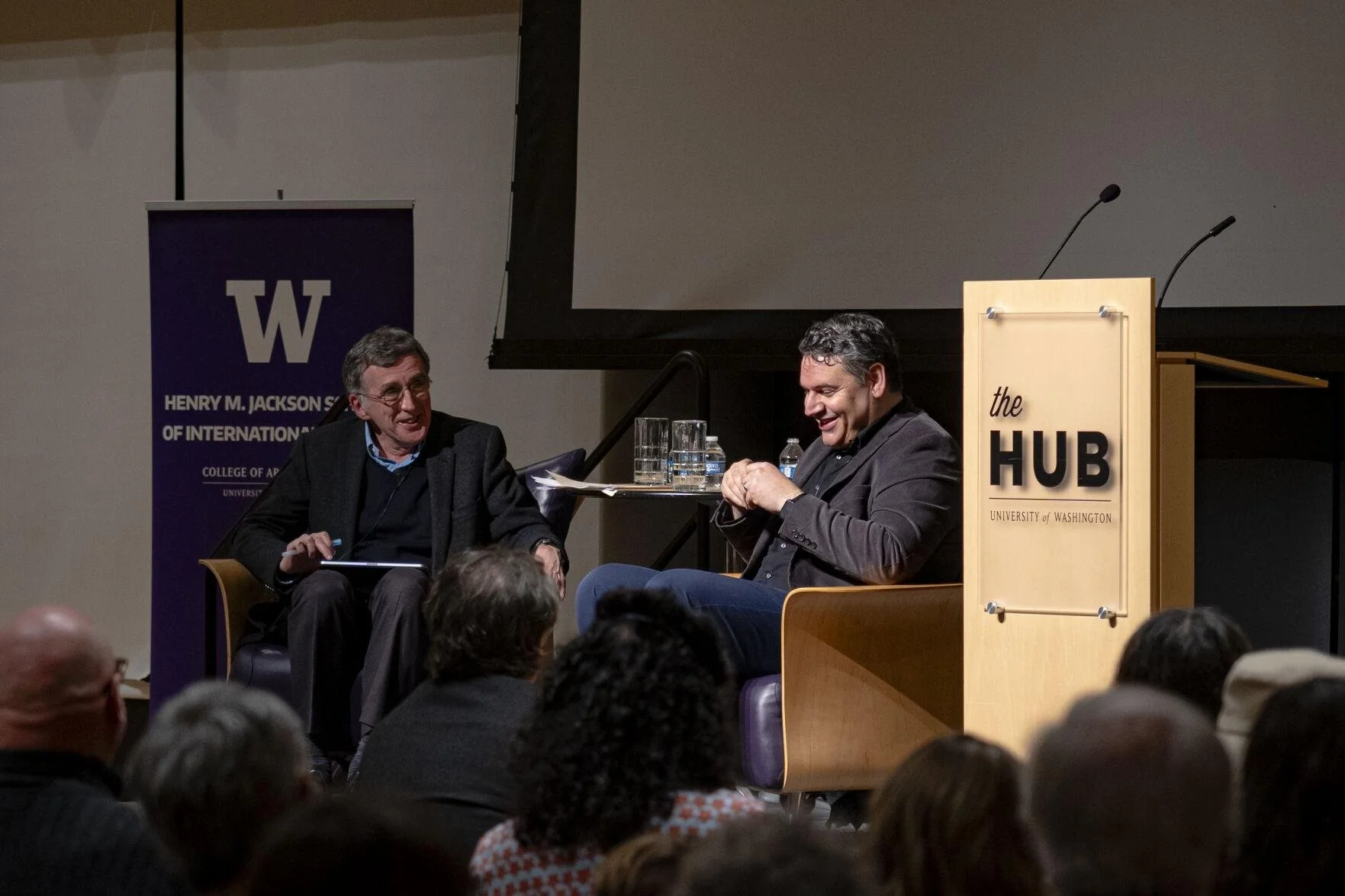Karam Dana delivers third lecture in “War in the Middle East” lecture series
By Cyrus Storlie
UW Bothell professor Karam Dana took the stage in the HUB’s South Ballroom to deliver the third installment of the UW lecture series “War in the Middle East” Jan. 30. Dana’s lecture focused on “The Question of Palestine and the Evolution of Solidarity and Resistance in the U.S.”
The event was put on by The Henry M. Jackson School of International Studies. Former director of the Jackson School and UW professor Reşat Kasaba felt it was the responsibility of the Jackson School to respond after violence broke out between Israel and Hamas Oct. 7. Kasaba has played a large role in organizing the lecture series.
“If you just talk about that event, without any historical context, it becomes overwhelming, really, because then you feel powerless; you don't understand why things are happening,” Kasaba said.
Dana was invited to speak due to his sociopolitical expertise on the region and how the conflict is viewed within the US. He also has a unique personal perspective on the matter due to familial connections to the Palestinian people.
The lecture examined the relationship Americans have with the region and how those views are changing. Dana attributed a turn in public opinion in favor of Palestinians to shifting aspects of American life.
To Dana, declining religious affiliation paired with increased public interest in social movements such as Black Lives Matter (BLM) and Indigenous sovereignty movements are indicators of the American public's dissatisfaction with the status quo. These movements also provide solidarity in a shared search for equality.
“There are new solidarities being forged around justice,” Dana said. “The impact of BLM is very significant in American society [and] also provided opportunities and new possibilities for Palestinians to speak.”
After the lecture, Dana answered questions from the audience. Dana’s response was blunt when asked about the political left’s unwillingness to condemn Hamas.
“If Israel occupation did not exist, Hamas would not have existed,” Dana said.
Fourth-year student Jana Gamaleldin was happy to hear Dana’s perspective.
“I think it's important that he mentioned, you know, that he has his own perspective,” Gamaleldin said. “I just think it's an important addition to the voices that we need to hear about this issue.”
The next lecture in the series will take place Feb. 6 at 5 p.m. in the HUB’s South Ballroom.
